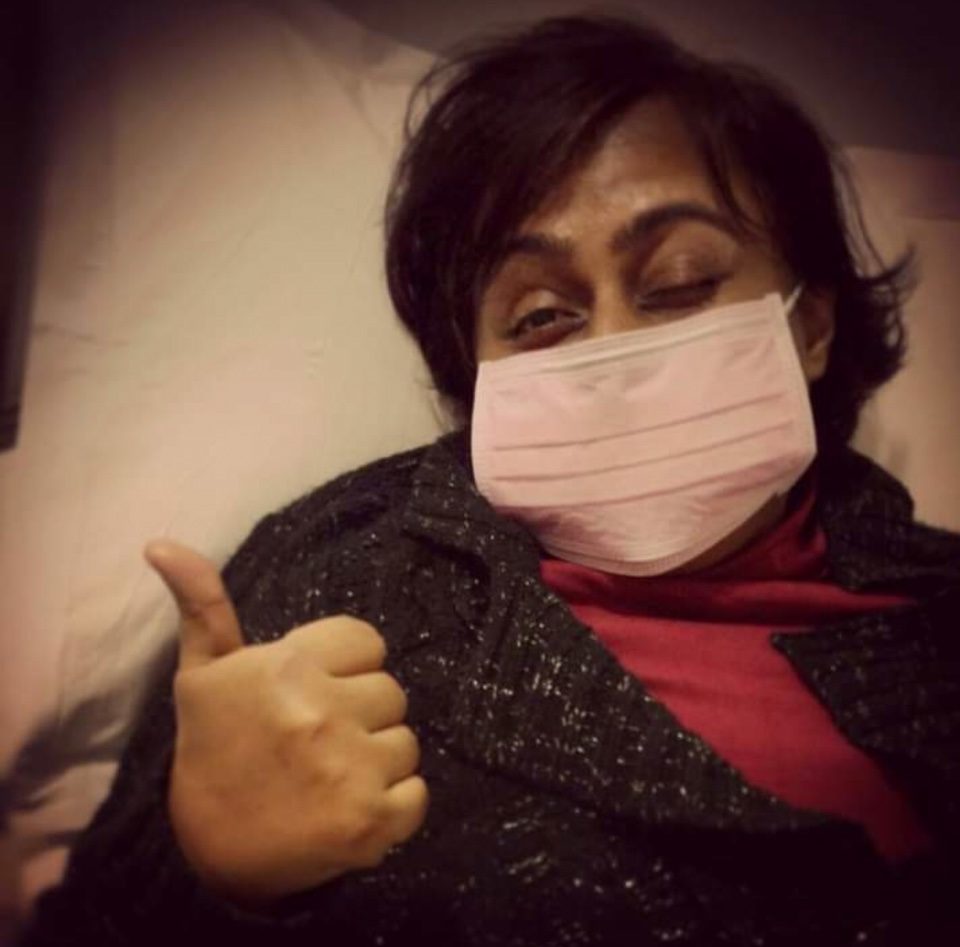
Payal is optimistic despite odds stashed against her
The pandemic lay bare the worst aspect of our health infrastructure—people dying on the street in want of oxygen—these poignant images have made home in our minds. The surging second wave of Covid-19 that consumed many lives has left an indelible imprint in our lives with many still trying to deal with the loss. There were many vulnerable people who were suffering from debilitating genetic disorder or chronic disease for years, and remained silent sufferers during this time.
The assault of the pandemic on the health care infrastructure has had a bad impact on meeting the needs of the most vulnerable, for they just don’t need family’s unflinching support but also regular specialized help. They were affected and so were their caregivers. The Ministry of Social Justice and Empowerment issued guidelines about services offered and precautions to be taken during the pandemic in languages in accessible formats, like Braille and audio tapes. There was also a move to provide during quarantine “essential support services, personal assistance, and physical and communication accessibility” to those with special needs.
Despite this, in the months that went by they remained the silent sufferers—with some notable exceptions—couldn’t raise their. But now as the dust settles —their woes have become visible.
One of the exceptions is a brave woman, Payal Bhattacharjee, 41, a resident of Dwarka, suffers from multiple brain tumours, — only132 reported globally in the last 110 years. She has a dubious distinction of being the first Indian to have this condition.
“The small tumours floating around in the fluid used for cushioning the brain and spine tend to compress all the nerves that come their way,” she explains, and in her case, optico-hypothalamus (responsible for sight) got compressed resulted in blindness with the right eye and the bilateral trigeminal nerve, despite the cyberknife treatment, her left nerve is affected that makes her feel “like someone is holding a bare electric cable against my cheeks and rest of the face.”
She stays with her mother, a 68 years old petite lady, who is her daughter’s only support system. There is no end to her troubles, Payal was tested positive for Covid. “I have no income. I write for Times of India digital without honorarium and my mother who is a pensioner draws barely enough to feed and clothe us, leave alone pay for my medical expenses,” she describes her predicament. An NGO, Jeevan Stambh Foundation has loaned her an oxygen concentrator that has been of great help, however, she’s in dire need of resources to fund her treatment.
Payal’s an inspiration for many, admired by friends who impress upon her that she’s “capable enough to live more and write more.” A patient who has conducted exhaustive research on medical sciences, she’s admired by top doctors for her knowledge. She’s full of information, often talks in medical jargon, a flurry of facts and information, many times more than people can handle. In addition, she had a liver transplant by Dr Arvinder Singh Soin and is, therefore, immunocompromised. Knowledge has empowered her to fight her rarest rare disease.
Further, she informs, “The mutation of the gene is confirmed in an AIIMS research and I am supposed to get neuroendocrine tumours but there were multiple cysts in the pancreas already. They blocked the exocrine functions (secretes enzymes) and for a couple of months I had to run to the bathroom after every meal” and has been prescribed a medicine that “costs Rs 3000 and lasts for only 3 days.” Her testing positive for the coronavirus only aggravated her condition, “Currently I can’t stand for long, gait problems and electricity flows through the right leg. Also, my bladder and bowel control is lost,” she describes.
Though her mother has been a pillar of strength—calls her ‘wondermum’—the rest of the family is not so supportive. “I called my brother to help me look after Mum (she’s also tested positive). My mother had a CT count of 21.05 and now it’s 28 and she’s taking care of me like before.” Perhaps, she got infected while collecting bags of home deliveries of medicines or food, despite taking all required precautions. She is not happy with her brother’s response “he’s not the brother I grew up with.” The brother is married and has told her mother and sister that he “can pay only rent, no electricity/water bills, food, or medicine and doctor’s fees.” Payal feels that her sister-in-law has a dominating influence on her brother. There’s conflict in the family that has made matters worse.
“The treatment is costing us Rs 40 lakh and we need funds to continue the treatment. I request you to kindly contribute towards the treatment and help in this hour of need. Each contribution is important!” she appeals. And the contributions can be made at http://impactguru.com/s/Wj0XkU or http://impactguru.com/s/t0ytzs or Paytm (Android Users Only): http://impactguru.com/s/paytm-payel-bhattacharya-1 .
There are many like Payal who are overcoming onerous challenges to living and make life worth living. And avoiding the problem that you need to face is like avoiding the life you need to live. That’s why people like Payal are the real heroes, they make disability an opportunity. Knowledge has made Payal powerful.
Doctors warn prolonged exposure to air pollution is emerging as a major risk factor, even…
Ceremonial pipping at Police Headquarters honours retiring personnel from constable to sub-inspector under honorary rank…
The new smartphones feature a 200MP camera system, large batteries with fast charging, enhanced durability,…
The move came at a Delhi High Court order, which called for the removal of…
A case was registered at the Greater Kailash police station and later transferred to the…
With the approval of the Golden Line extension up to Terminal 1 IGI Airport station…